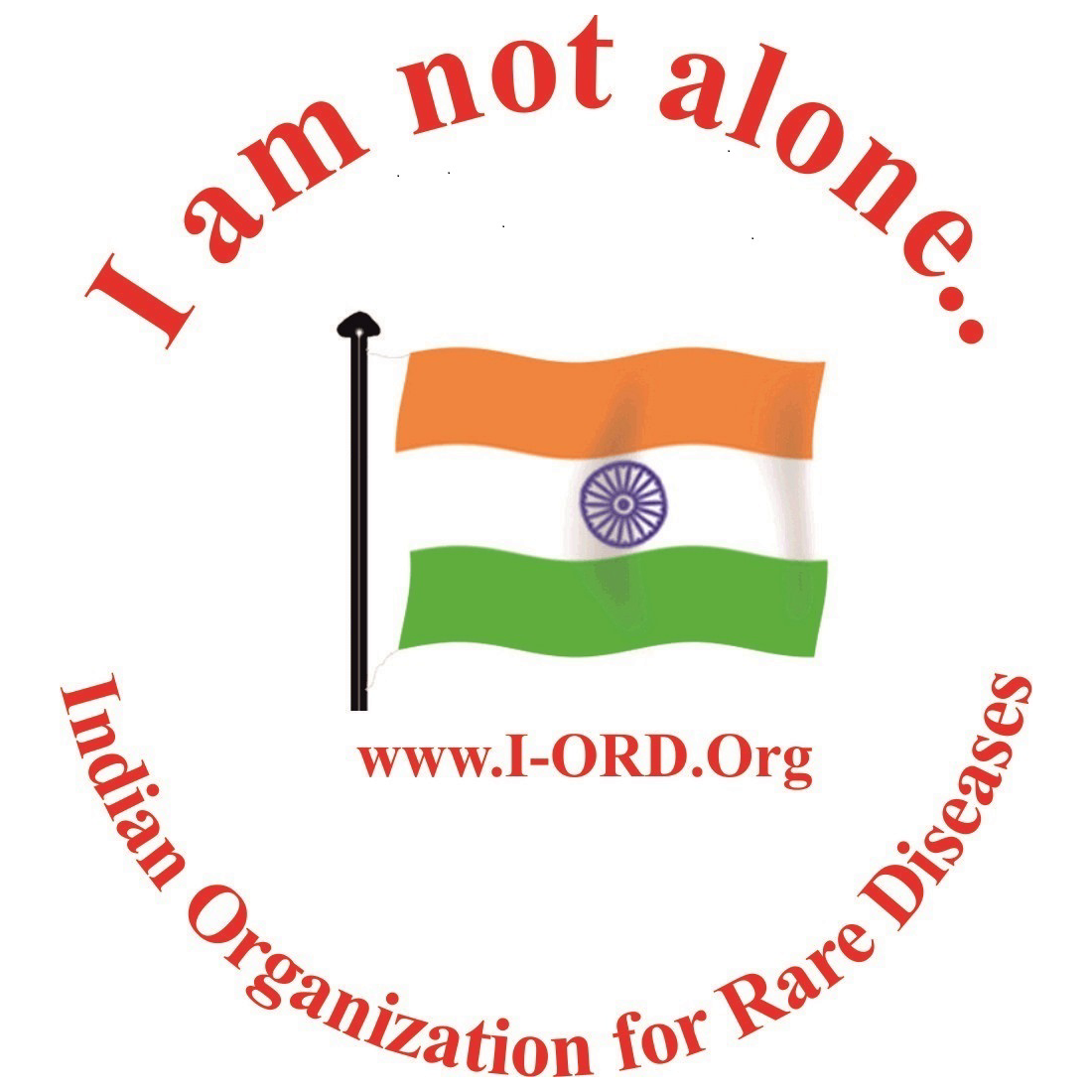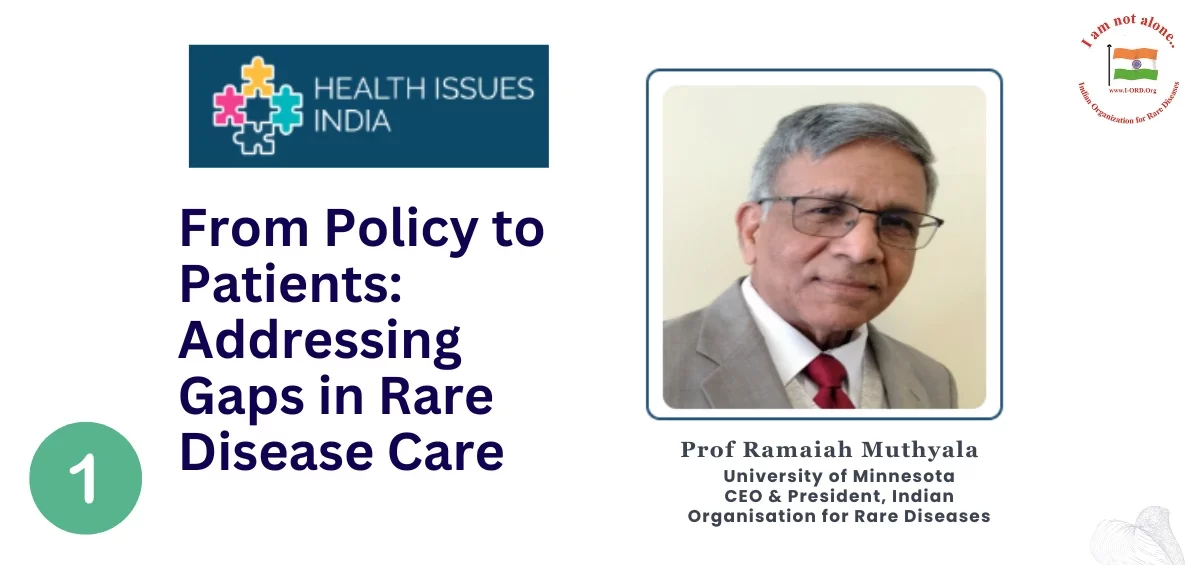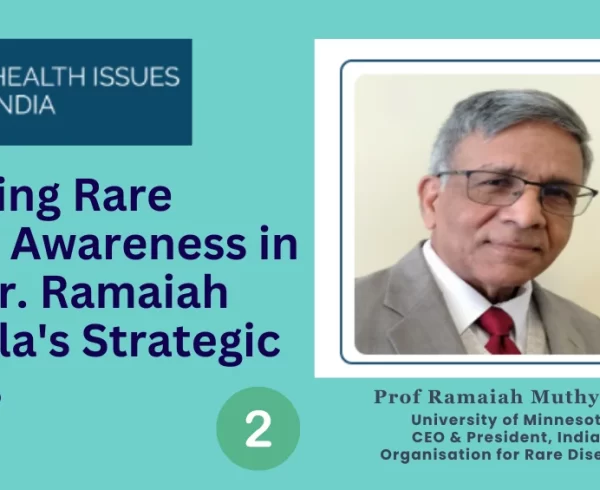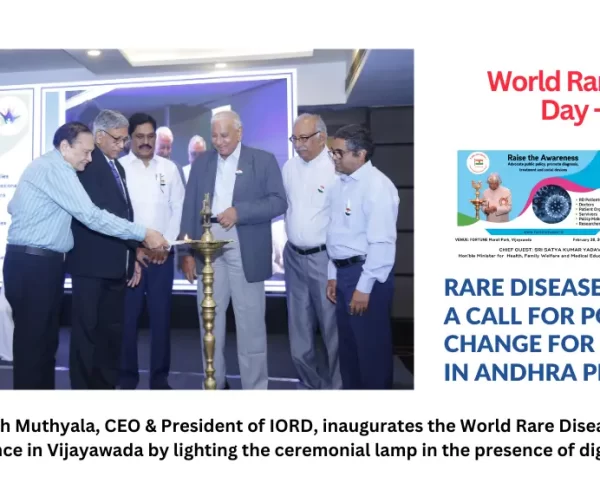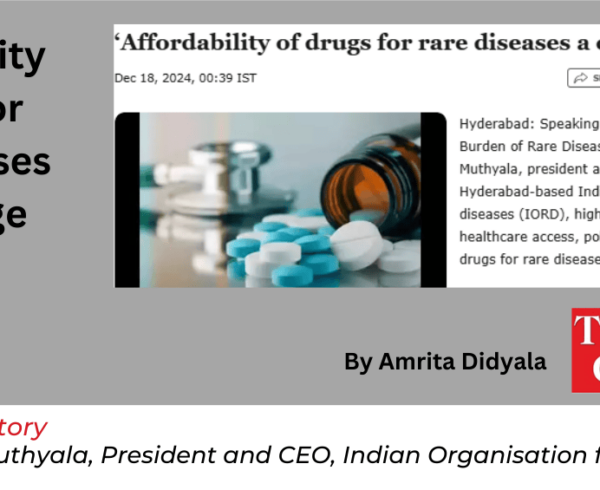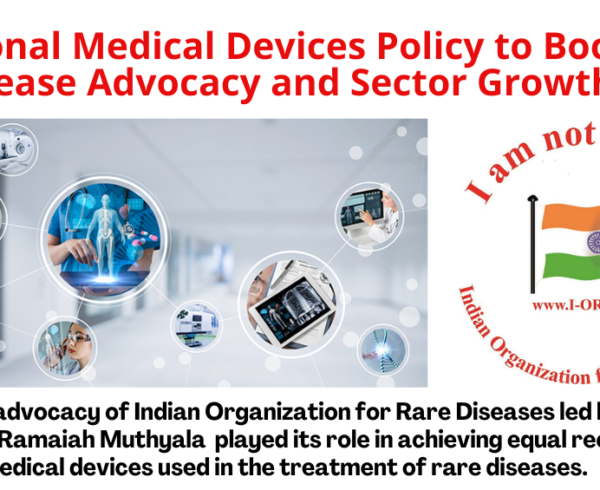The following is an excerpt from a three-part interview series featuring IORD CEO & President Prof. Ramaiah Muthyala. In the first part, he speaks to Health Issues India on rare disease care in India and highlights NPRD’s progress, persistent gaps in diagnosis, treatment, and the need for disease-specific approaches. Read more at healthissuesindia.com
Rare diseases affect millions of people worldwide, yet they often remain overlooked in mainstream healthcare policies. These consist of 7,500 conditions that affect multiple systems, with a shortage of specialised medical professionals, limited testing facilities, and restricted treatment options making diagnosis a challenge. With India’s vast and diverse population, the country bears a significant burden (70 million approx.) of rare diseases.1 Despite progress, gaps still remain in diagnosis, treatment accessibility, and financial assistance.
To gain deeper insights into India’s rare disease landscape, we spoke with Prof Ramaiah Muthyala, CEO and President of Indian Organisation for Rare Diseases (IORD), a leading advocate and expert in rare disease policy. With over two decades of experience in drug discovery and rare disease advocacy, he has played a crucial role in shaping policies, raising awareness, and pushing for reforms both in India and globally. In this interview, Dr Muthyala discusses the evolution of India’s National Policy for Rare Diseases (NPRD).
NPRD has evolved over the years. From your perspective, what are its key successes, and where do the biggest gaps remain?
The idea of NPRD was first suggested in the White Paper titled A Journey Together: Rare Diseases and Orphan Products in India, which was disclosed by President Kalam in March 2015. Two years later, NPRD became a reality in 2017, following a Delhi High Court ruling demanding medicines for rare diseases. It was redrafted in 2019 and again in 2021.
It has created significant awareness, bringing rare diseases into broader healthcare discussions. It has enabled the development of a framework for diagnosis, treatment, and research, despite rare diseases being traditionally overlooked. Some notable successes include:
- Increased access to orphan drugs and treatments
- Integration of rare disease management into healthcare systems
- Financial support and insurance coverage
- Research and development focus
- Establishment of Centers of Excellence
There have also been critical policy advancements such as the Amendment of the Indian Drugs and Cosmetics Act (1945) to include rare diseases and orphan drugs (2017), inclusion of orphan drugs in the PLI scheme, recognition of rare diseases for CSR funding, initiation of preventive strategies for specific blood disorders like sickle cell disease, and exemption of orphan drugs from import duties.
However, significant challenges remain. Orphan drug development is still complex and requires a multidisciplinary approach. Healthcare coordination between primary care providers, specialists, and other stakeholders is lacking. There is also a gap in in-depth knowledge and training among healthcare professionals. Additional challenges include inadequate research, difficulties in drug availability, and implementation issues, particularly for rural populations.
Given the diversity of rare diseases and their small patient populations, do you think a more customised, disease-specific approach within NPRD would be more effective than a broad policy framework?
I strongly believe that a more customised, disease-specific approach within NPRD 2021 would be far more effective than a one-size-fits-all framework. India has a population of 1.5 billion, and rare diseases vary significantly. Some require expensive gene therapies, while others need lifelong management through blood transfusions or enzyme replacement therapies.
Despite its strong start, NPRD 2021 overlooked several critical aspects. It does not define which rare diseases qualify for inclusion in its preferred list, which currently stands at 63 diseases. There is also no study assessing whether a disease-specific approach would improve patient quality of life in resource-limited countries like India. Additionally, the policy caps financial support at 50 lakh per patient, which is insufficient for high-cost treatments like gene therapy. While NPRD has categorised diseases to ensure equitable access and optimize resources, there is no health technology assessment to evaluate whether financial support is meaningful. Addressing these gaps is essential.
